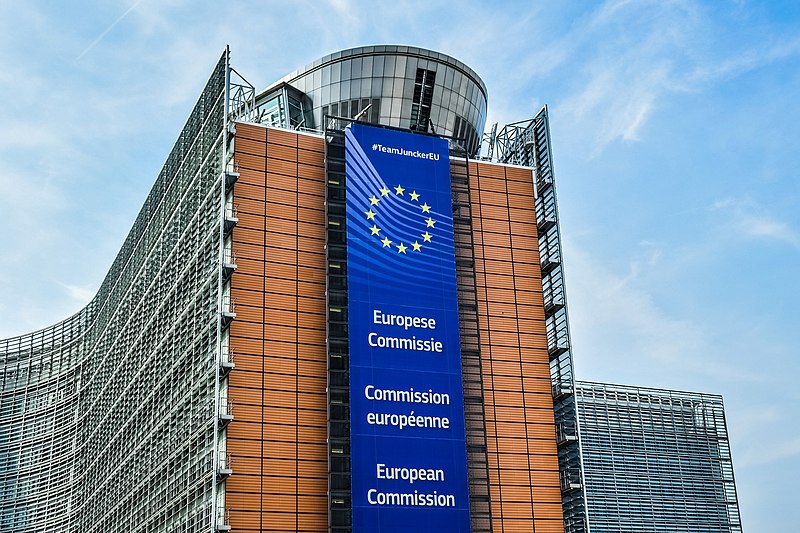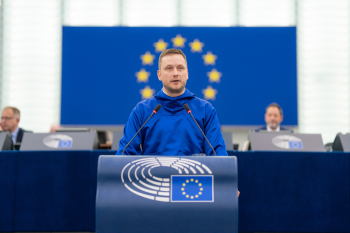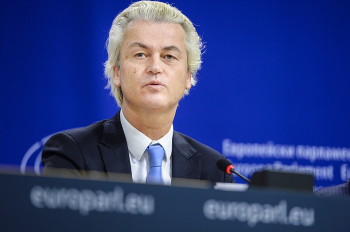
The European Commission has approved, under EU State aid rules, Belgium's capacity mechanism. The measure will contribute to ensuring the security of electricity supply, in
particular in view of Belgium's decision to phase out all nuclear capacity by 2025, without unduly distorting competition in the Single Market. It is the first capacity mechanism approved by the Commission after the entry into force of the new Electricity Regulation.
Executive Vice-President Margrethe Vestager, in charge of competition policy, said: “Capacity mechanisms can help to safeguard security of electricity supply to the extent that they are designed in a way that avoids distortions of competition in energy markets. Following close and constructive cooperation with the Belgian authorities throughout the process, we have approved a well-designed capacity mechanism that will contribute to ensuring security of electricity supply in Belgium, in particular in view of the upcoming phasing out of all nuclear capacity by 2025, while ensuring that possible distortions of competition are kept to a minimum. We also welcome the decision by the Belgian authorities to introduce certain sustainability requirements for new fossil fuel installations. This is a positive development towards the achievement of the important objectives set out in the European Green Deal.”
In September 2020, the Commission opened an in-depth investigation to assess whether Belgian plans to introduce a new national market-wide capacity mechanism were in line with the EU State aid rules.
The Commission had concerns that the capacity mechanism, as notified by Belgium, might not be in line with EU State aid rules, in particular the Guidelines on State aid for environmental protection and energy. Notably, the Commission had doubts as to whether:
- the actual need for a capacity mechanism in the Belgian electricity market had been properly demonstrated and quantified by Belgium, and whether the capacity mechanism would not go beyond what is necessary to address possible future issues of resource adequacy, possibly leading to over-procurement of capacity. In this respect, the Commission needed to verify whether the measure was in line with the Electricity Regulation, which came into force in January 2020, and which sets out how resource adequacy should be estimated.
- the measure would not discriminate against certain technologies (e.g. renewable capacity) or unfairly limit participation by cross-border capacity, and
- the capacity mechanism, in particular the so-called “congestion revenues” that would be earned by the Transmission System Operator (“TSO”) from the allocation of cross-border tickets (i.e. access rights for foreign capacity providers to participate in the capacity mechanism) would not reduce incentives to invest in interconnection capacity, that is further interconnection between Belgium and its neighbouring countries.
During its in-depth investigation, the Commission received and analysed feedback submitted by Belgium and several interested parties, including energy producers, non-governmental organisations and trade associations.
Based on the input received and the improvements made by the Belgian authorities during the investigation following constructive exchanges with the Commission, the Commission concluded that the Belgian capacity mechanism complies with EU State aid rules, in particular with the 2014 Guidelines on State aid for environmental protection and energy, and with the Electricity Regulation. In particular:
- Belgium improved its resource adequacy assessment and brought it in line with the EU-wide methodology for resource adequacy assessment approved by the European Union Agency for the Cooperation of Energy Regulators (ACER) in October 2020. This resource adequacy assessment describes the expected level of security of supply in a given Member State or in the EU for a ten-year horizon. The Commission was therefore able to ascertain the actual need for a capacity mechanism in Belgium and to determine that the envisaged aid would be proportionate and limited to what is necessary, in light of its objective to guarantee security of electricity supply in Belgium. Importantly, Belgium has also decided to introduce certain sustainability requirements for new fossil fuel installations that will take part in the capacity mechanism, despite this not being required by the State aid rules currently in force. These requirements will contribute to the achievement of the objectives of the European Green Deal.
- The Commission found no evidence that confirmed its initial doubts that measure would put certain technologies at a disadvantage with respect to their participation in the scheme, nor unfairly limit participation by cross-border capacity.
- The Commission also found no evidence that the measure would reduce incentives for TSOs to invest in interconnection capacity.
On this basis, the Commission concluded that the measure will contribute to ensuring the security of electricity supply, in particular in view of Belgium's decision to phase out all nuclear capacity by 2025, without unduly distorting competition in the Single Market.
The Commission therefore approved the measure under EU State aid rules.
Background
The Belgian market-wide capacity mechanism is intended to replace the Belgian strategic reserve, which the Commission approved under EU State aid rules in 2018.
Under the capacity mechanism, beneficiaries will be selected though a competitive bidding process and will be remunerated for their availability in situations where there is shortage of supply. The State support will take the form of a capacity payment for the duration of the capacity agreement (which would range between one and 15 years depending on the size of the investment). In exchange, the successful bidders will make their capacity available to the TSO during stress events experienced by the electricity system.
With the capacity mechanism, Belgium aims at ensuring security of electricity supply, in particular in view of its decision to phase out of all nuclear capacity by 2025. More specifically, the objective of the scheme is to ensure that there is sufficient capacity for the production of electricity and that such production meets the demand (so-called “resource adequacy”).
Capacity mechanisms have the important objective of ensuring security of electricity supply. But if they are not well designed, they may lead to higher electricity prices for consumers, give undue advantages to certain energy operators or hinder electricity flows across EU borders.
The Commission's 2016 sector inquiry into capacity mechanisms has formed the basis for a close cooperation between the Commission and EU Member States to ensure that capacity mechanisms are well-designed and fit for purpose.
The sector inquiry report confirmed that capacity mechanisms can be necessary where market and regulatory failures block the price signals necessary to maintain appropriate levels of security of supply. However, the report made clear that EU State aid rules are important to ensure that capacity mechanisms do not act as backdoor subsidies for specific technologies or cause other undue distortions of competition, or come at too high a price for electricity consumers.
Since the publication of the sector inquiry, the Commission has approved several capacity mechanisms, including the Belgian Strategic reserve which the Commission approved in 2018. All decisions can be found on the Commission's dedicated webpage.
A non-confidential version of the decision will be published under case number SA.54915 in the State aid register on the Commission's competition website once any confidentiality issues have been resolved. New publications of State aid decisions on the internet and in the Official Journal are listed in the Competition Weekly e-News. Photo by pixabay free images, Wikimedia commons.
















